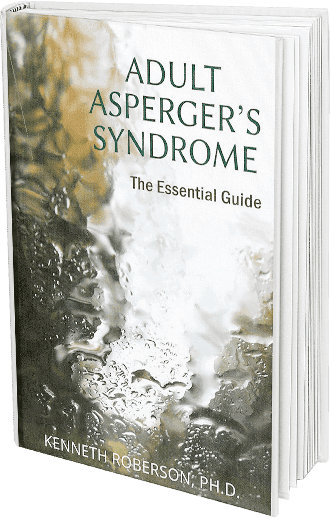
Maxine Aston (2001) in her study of Autism Spectrum Disorder and sexual intimacy found that fifty percent of Autism Spectrum Disorder (ASD) and neurotypical (NT) couples had no sexual activity within their relationship. In fact, “there was no affection or tactile expression whatsoever.”
Indeed, people on the spectrum as well as experts in Autism Spectrum Disorder tell a similar story. While adults with Autism Spectrum Disorder have sexual needs comparable to the general population, including positive attitudes towards sexuality and the desire to engage in sexual activity, the very difficulties with social interactions that are at the core of Autism Spectrum Disorder make achieving an appropriate and satisfying sexual relationship quite difficult.
The impairments in social awareness and reciprocal social interactions necessary for learning appropriate sexual interplay lead to complications in understanding how to engage sexually. Difficulty learning how to interact with others, recognizing subtle interpersonal cues, communicating with others and considering another’s point of view, all conspire to make it difficult to navigate the complexities of a satisfying sexual experience.
NT partners frequently complain of a lack of emotional support and empathetic understanding from AS partner who, in turn, often feel undervalued and criticized for not meeting their partner’s emotional and sexual needs.
Sensory sensitivity, common in adults with Autism Spectrum Disorder, plays a large role in reports of sexual dissatisfaction in both partners. Touch is often unpleasant for the AS adult. Oversensitivity to taste and smell often impair a couple’s ability to enjoy close physical contact.
Tony Attwood notes, “one of the characteristics of Autism Spectrum Disorder can be emotional and social immaturity.” Rather than experiencing sex as an emotionally compatible act, AS-NT couples frequently experience themselves playing out, by necessity, parent-child roles.
The “technical” aspect of sex is another source of dissatisfaction. Attwood notes, “The sexual script of the person with Autism Spectrum Disorder can be described by their partner as rigid, repetitive and unimaginative with a relative lack of sexual desire.” When sexuality becomes a special interest in terms of acquiring information and treating sex as a special interest, like train schedules or the nuances of computer software, the possibility of intimacy is severely compromised.
A cycle of every increasing emotional dissatisfaction is common with NT partners. Feelings of loneliness, confusion, frustration, and isolation resulting from unanswered attempts to achieve sexual satisfaction with the AS partner cause many to react with rejection towards the AS partner, which in turn creates even more emotional estrangement and corresponding emotional and psychological decline.
Finally, the greatest source of sexual incompatibility and unhappiness is the lack of emotional intimacy between neurotypical and Autism Spectrum Disorder couples. As Aston states,
Romance is often the very thing that can be lacking from the sexual side of the relationship and this, in time, has a detrimental effect upon the quality or willingness of either partner to participate in making love. Often it is not realized by the AS partner that sexual acts need to be precipitated by emotional closeness and that a lack of this can result in their partner’s reluctance to make love. Consequently, lovemaking becomes non-existent.
Without the important relationship skills of empathy, trust, sharing of thoughts and feelings, willingness to resolve conflicts, and genuine interest in the partner’s physical and emotional experience, a compatible sexual relationship is virtually impossible for most couples, whether one or both is on the spectrum.
In an upcoming blog, I will describe my thoughts on how couples can overcome the common sexual problems that occur among adults with Autism Spectrum Disorder.
You can read more articles here.




